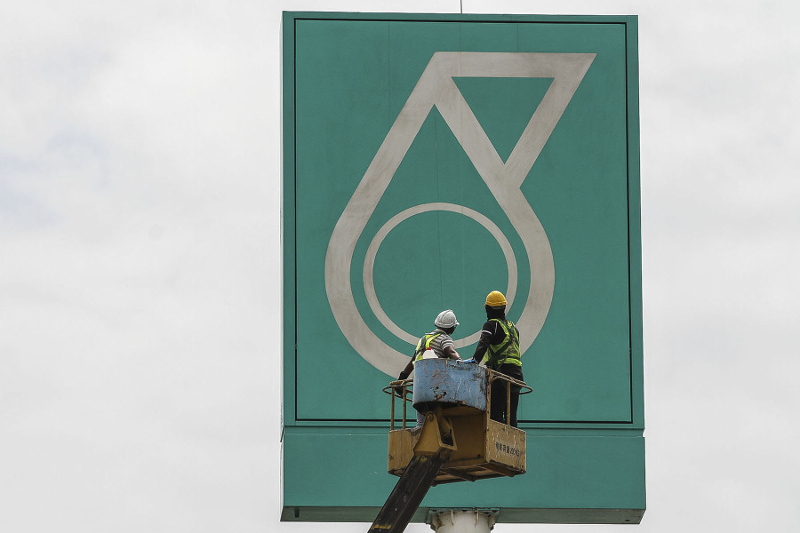KUCHING, July 10 — The state government today made it clear that Petroliam Nasional Berhad (Petronas) is not exempted from the Oil Mining Ordinance 1958 or the Sarawak Land Code when it or its contractors undertake exploration, prospecting and mining for petroleum in the state.
Deputy Chief Minister Datuk Amar Awang Tengah Ali Hasan said the state government has never waived the obligations of Petronas and its contractors from complying with state laws when undertaking upstream activities both offshore and inshore of Sarawak.
“The purpose of regulating the upstream activities of Petronas and its contractors is to ensure that they comply with our state laws,” he said when tabling Oil Mining (Amendment) Bill 2018 at the Sarawak State Legislative Assembly here.
He said these laws are to ensure that the exploitation of the state’s valuable resources is carried out in a manner that serves the best interests of the state and its people.
He said the state should be able to derive optimal economic and fair equitable monetary returns from its hydro-carbon resources.
Awang Tengah said based on statistics made available by the Statistics Department, the volume of liquefied natural gas (LNG) exported from Sarawak is 27 million metric tons with a total gross value of RM41.1 billion a year.
He said the total crude petroleum exported from Sarawak for the year 2017 is 5,353,000 metric tons with the market value of RM9.4 billion.
He noted that based on information from Petronas, there are 41 production sharing contract (PSC) blocks, which are mainly located in the offshore of Miri and Bintulu.
“The total gas production is 4,123 million standard cubic feet or 680,000 barrels oil equivalent per day while the total oil production is 173,000 barrels per day, both for the year 2017,” he said.
Awang Tengah said oil and gas produced in Sarawak accounted for about 30 per cent of national oil production and between 60 and 65 per cent of the total national natural gas production during the period of between 2005 and 2015.
The data confirmed that major upstream activities in the exploration and production of oil and gas occurred in Sarawak.
He said the oil and gas resources obtained from Sarawak contributed significantly to the national economy, adding that it is in both the state and national interest that upstream activities be properly regulated.
In his conclusion, Awang Tengah said the state government may consider increasing the penalty for non-compliance of OMO from RM250,000 if the need arises, as suggested by some state lawmakers.
“I appreciate that the amount of penalty could have been higher. We do not anticipate a lot of non-compliance due to the high impact it would cause to those who breach OMO,” he said.
On the issue of enforcement, Awang Tengah said the government has decided to give a grace period of until the end of 2019 for oil and gas industry players to comply and regularise their operations.
On the issue of why the amendments were not made retrospective in their effect as suggested by state DAP’s Kota Sentosa lawmaker Chong Chieng Jen, the deputy chief minister said since the amendments involve criminal penalties, Article 7 of the Federal Constitution prohibits criminal laws from having a retrospective effect.
“Furthermore, to have retrospective non-criminal penalty provisions would unnecessarily disrupt the industry,” he said.
The Bill was later passed unanimously by the lawmakers from the Gabungan Parti Sarawak (GPS) and state Pakatan Harapan (PH).
The Bill will come into force on the date it is published in the state government gazette.



















